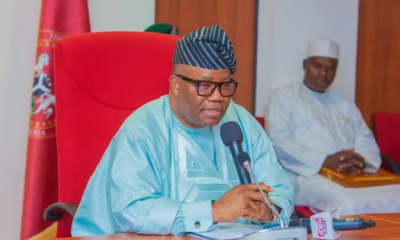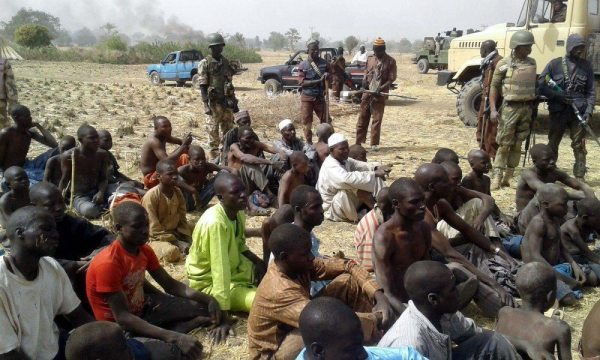A counterterrorism strategy the DSS is running, different from the military Operation Safe Corridor, has been exposed. And the jury is still out on its effectiveness and popularity among Nigerians.
Called Sulhu, as revealed in an investigative piece by the New Humanitarian, a peace reporting project, the DSS programme lures Boko Haram and ISWAP commanders with a promise of a better life, a stipend, accommodation, and a means of livelihood.
All the Mujaheed need to do, according to the report, is skip out on their terrorist organisations.
No fewer than 150 commanders have been so baited.
Aliyu, not his real name, is one of the ex-fighters Sulhu—meaning peacemaking—has brought in. And in exchange for the good life he lives now with his Boko Haram wife, he has been helping in talking his former colleagues out of the life the extremist ideology has dumped them.
While they kill and maim, the terrorists themselves feel no safer under the unrelenting bombardment by the federal troops, and the incarceration at the most notorious holding cell at Giwa, Maiduguri. Nor are they spared of the wrath of ISWAP and Boko Haram top notches who kill their subordinates at will.
What also differentiates Sulhu is that the former terrorists on the project have not got any state pardon.
“Neither have they been held to account for any crimes committed in a brutal conflict that is now in its twelfth year,” the report stated.
That is part of the reason the programme is a state secret.
Many are in support of it. They consider it as smart warfare that is thinning down the leadership of the terrorist groups in a less kinetic form.
According to the report, victims whose lives have been impacted in no small way are all too eager to accept any approach that will restore peace and allow them to leave their IDP camps. They don’t mind their relatives and loved ones Aliyu and his groups have killed.
“If Sulhu allows us to go back to our farms and villages, and the government says we must accept, then I will,” said one of the IDPs the New Humanitarian interviewed.
Some analysts however consider Sulhu a form of injustice, referring to those ex-commanders as mass killers who just got away with their crime.
“There’s a lack of buy-in and a lot of pushback from sections of the military and political office holders who don’t see the need for this process,” the report quoted an an Abuja-based lawyer.
Such position notwithstanding, he report gathered that almost 60 percent of people surveyed across the northeast in 2018 said they could agree to reconciliation with repentant jihadists if that was a path to peace.
President Muhammadu Buhari wrote in a recent piece published in an international newspaper that Nigeria needs software—railroad, jobs, opportunity, infrastructure—to win the war against terror.
Sulhu , clandestine, might just be one of the soft war.

 Latest2 days ago
Latest2 days ago
 Crime3 days ago
Crime3 days ago
 Editorial7 days ago
Editorial7 days ago
 Agribusiness5 days ago
Agribusiness5 days ago
 Business6 days ago
Business6 days ago
 Business3 days ago
Business3 days ago
 Agribusiness3 days ago
Agribusiness3 days ago
 Featured6 days ago
Featured6 days ago

